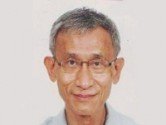Yale-NUS College: Singapore's drive for Liberal Arts education
By Yuen Chung Kwong When American parents drop off their children at primary school, the parting words are usually “have fun” rather than “work hard”, and until the internet boom created teenage millionaires out of non-athletic nerds. The most admired students in high schools are the football captains and cheerleaders. When a high school senior chooses which colleges to apply to, he/she often asks about the party scene rather than academic standards.
The Ivy League colleges would admit sportsmen, movie starlets and children of politicians with mediocre transcripts and SAT scores, in order to add “diversity” to its student population. One President of Yale University, Bart Giamatti, resigned to become the US Baseball Commissioner.
This does not mean that American society does not care about work, money, and academic performance in relation to earning power, merely that it has different experiences about what gets one ahead. American leaders and entrepreneurs show their sparks in ways different from the rise of a salaryman in a Japanese corporation or a returned scholar in the Singapore public sector.
Yet, despite the differences in educational cultures, Asia has been setting its higher education agenda according to American rules. Many cabinet ministers and corporate CEOS of Hongkong, South Korea, Taiwan and Thailand have MIT, Ivy League and Stanford degrees, as do the top professors in their universities. Academics are promoted according to American criteria and procedures.
Publishing at American conferences and journals is more likely to be valued, and even just getting a visitor from Stanford/MIT to come over, regardless of what he/she might do during the visit, is alone considered an achievement. Largely, this is because the top American universities are thought to be good at linking education and research with business.
Professors earn high consultancy fees, sit on company boards, and start their own companies with students. It is rarely attached significance that Bill Gates, Steve Jobs, Michael Dell, Larry Ellison etc never completed their college education, and Jerry Yang dropped out of his Stanford PhD programme in order to run Yahoo full time, after developing his web search engine on Stanford machines.
In the same way, Bill Gates used Harvard computers to write his hardware emulator/Basic language compiler, which his classmate Paul Allen marketed to microcomputer companies in Arizona and California; when business began to flow in, they both dropped out of Harvard.
American professors are encouraged, maybe compelled, to be enterprising in many ways; they fight for research grants from government agencies and commercial companies, to help pay for their universities' running costs and their own summer salaries, and to support teams of graduate students and postdocs on their projects. American students are encouraged to do their own thing like Bill Gates and Jerry Yang, rather than memorize sample answers for possible examination questions.
In their pursuit of paper qualifications, rote learning of textbook knowledge and examination sample answers, Asian professors and students are far away from the American style creativity and entrepreneurship they admire. Deep and disruptive changes have to occur before they can aproach their American role models.
In fact, for many years American universities' degree system, under which students qualify for graduation by accumulating credits over a number of terms, was considered by the Singapore establishment to be less rigorous than British universities' year by year examination system: government scholars were sent to Oxbridge rather than Ivy League, and my own university (NUS) strenuously resisted staff suggestions that, because of the expansion in student numbers and differing student capabilities, an American credit system, allowing weaker students to take fewer courses per term and qualify for a degree over more years, would work better.
This began to change in the early 80s with the rising importance of Information Technology: because US was considerably more advanced in IT, government scholars began to be sent there for computer science and engineering, and subsequently for other subjects too. In 1992 NUS was given the mandate to implement a "modular" curriculum system, American credit system by another name, with the view that a more flexible curriculum might enhance student creativity and free thinking. Subsequent changes with that objective in mind included a Core Curriculum programme, originally meant to be applied university wide but later morphing into the elite University Scholars Programme, an experiment to include the US Scholarstic Aptitude Test as a admission requirement, and a General Studies Programme meant to widen student exposure in all professional specializations.
Yale-NUS College is the latest initiative, with staff from Yale being seconded to undertake administrative and academic tasks in a new Singapore college campus to develop a liberal arts programme; though the college's graduates will receive a degree awarded by NUS, the Yale-NUS College name will be embossed on the diploma thus providing a stamp of approval.
The Yale-NUS College initiative suffered attack from some Yale staff over doubts about whether the college's student and staff would enjoy the same academic freedom that exists at Yale, and a meeting of Yale College faculty held in April passed, by a clear though not overwhelming majority, a resolution that expressed such reservations. However, considerable support from senior Yale academic and administrative staff for the college was shown, with a number of them accepting secondment to Singapore. For now the issue lies quiescent at the Yale campus, but may flare up again later depending on events that might occur at the college with bearing on the academic freedom issue.

























 Advertise
Advertise










